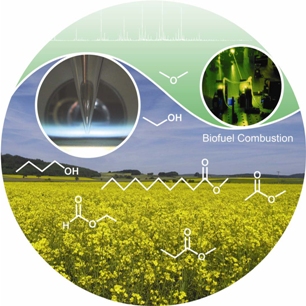Project Overview
The U.S.-India Consortium for Development of Sustainable Advanced Lignocellulosic Biofuel Systems is a collaborative effort between Indian and U.S. institutions under the Joint Clean Energy Research and Development Center (JCERDC) initiated by the Governments of India and the United States to accelerate transition to a low-carbon, high-performance and energy-secure economy. The Biofuel Consortium addresses the second generation biofuels R&D priority area of the JCERDC, emphasizing sustainable feedstock cultivation and supply, biochemical conversion technologies for production of second generation biofuels with minimal environmental impact, and analysis of overall sustainability and supply chain of feedstocks as well as biofuel. The consortium is jointly led by the Indian Institute of Chemical Technology (IICT), Hyderabad, India and the University of Florida (UF), Gainesville, Florida, USA.
Vision
The major goal of this consortium is to develop and optimize selected non-food biomass (high-yielding varieties of sorghum, pearl millet, bamboo and switchgrass)-based advanced biofuel systems and bio-based products like biogas and lignin-based high-value polymers for the U.S. and India. The successful completion of the project is expected to benefit both nations by delivering a working model for feedstock production and supply, biochemical conversion approaches and technologies that have been validated on pre-commercial scale systems, and overall economics and sustainability of biofuel production and supply systems.
Research Areas
-
Feedstocks
-
The UF-led collaborative research team will develop second generation feedstocks which are derived from inedible plant matter. The proposed research will optimize the production of advanced biofuel feedstock by improving cultivars through intensive breeding/genomics and by developing best cultural management practices for the different crop species. The primary goal is to develop and optimize several crops as biofuels feedstocks.
feedstocks of interest
- Bamboo
- Pearl Millet
- Sorghum
- Switchgrass
-
-
Conversion
-
The overall goal of this work program is to improve lignocellulosic biomass processing technologies for fermentable sugar production and subsequently their conversion to biofuel. An additional emphasis of this program is on the processing and utilization of waste streams for recovery of nutrients and bioproduct production, and for reuse of wastewater. This approach goes a long way in ensuring that the biofuel is manufactured with minimal environmental impact and there are additional revenues for the biorefinery.
conversion topics
- Improve lignocellulosic biomass processing technologies
- Develop processing and utilization of waste streams
- Develop manufacturing methods with minimal environmental impacts
-
-
Sustainability & Economics
-
The group will develop a set of sustainability indicators for the advanced biofuels. Standards similar to those developed for sustainable feedstock management, energy balances, greenhouse gas emission reductions, and existing codes and guidelines for biomass harvesting/collection, transport and conversion will be used to create some of these indicators.
sustainability topics
- Analysis and development of certification protocols and sustainability standards
- Energy, emissions, and economic analysis
- Supply chain management analysis of the production, distribution, marketability, and sustainable attributes of food based and non-food biomass based biofuel
-
Project Information

Biofuels research and optimization.